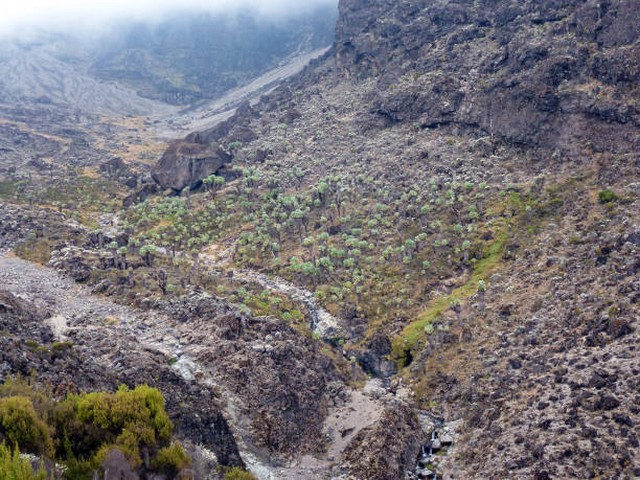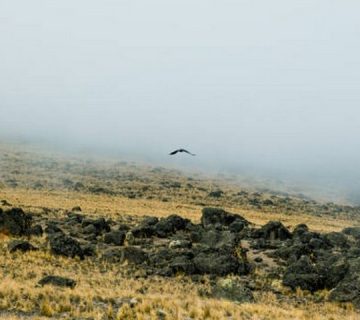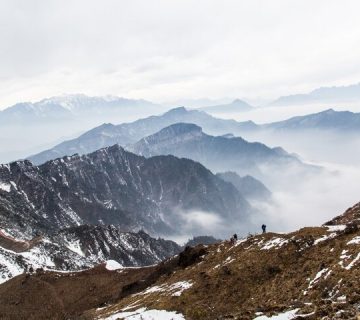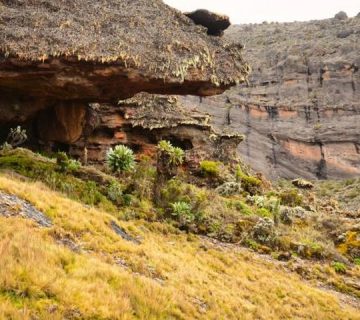Birdwatching During Kilimanjaro Trekking: A Feathered Adventure
Introduction: Why Combine Birdwatching with Kilimanjaro Trekking?
Imagine yourself slowly ascending the majestic slopes of Mount Kilimanjaro, each step a closer approach to the roof of Africa. Now, imagine this adventure enveloped in the vibrant symphony of bird calls and the flutter of wings in vivid hues. Birdwatching during Kilimanjaro trekking isn’t just an activity; it’s an enriching experience that combines the thrill of hiking with the serene pleasure of observing some of the world’s most exotic birds in their natural habitat.
At the Kilimanjaro Centre For Trekking and Ecotourism (KCTE), we understand that an expedition to this iconic peak is a bucket-list adventure. We also believe in enhancing this journey with unique experiences like birdwatching, making your trek not only a physical challenge but also a journey of ecological discovery and connection with nature.
The Avian Wonders of Kilimanjaro
Flora and Fauna at Various Altitudes
Kilimanjaro is not only famous for its snow-capped summit but also for its diverse ecosystems. As trekkers ascend from the lush rainforests at the base to the alpine desert zones near the top, the variety of bird life changes dramatically.
In the montane forests, look out for the dazzling Hartlaub’s Turaco or the secretive African Green Pigeon. The shrubby areas are home to the streaky seedeater and the Schalow’s wheatear, each species adapting ingeniously to the mountain’s varying climates.
Rare and Endemic Species
Some of the bird species you might encounter are not only rare but are endemic to the region, such as the Kilimanjaro White-eye. This species, with its distinctive white eye-ring, is a true treasure for avid birdwatchers and is mostly found in the upper moorland and forest zones of the mountain.
Planning Your Birdwatching Trek
Best Times for Birdwatching
Though Kilimanjaro is accessible all year round, the best birdwatching experiences coincide with the dry seasons, from late June to October and from late December to early March. These periods typically promise clearer skies and more accessible trails, allowing for uninterrupted birdwatching opportunities.
What to Bring
Equipping yourself with a good pair of binoculars and a field guide to East African birds will greatly enhance your experience. Additionally, wearing camouflage or earth-toned clothing will help you blend into the natural environment, causing less disturbance to the bird life.
At KCTE, we provide expert guides who specialize not only in the trek itself but are knowledgeable in the local flora and fauna, ensuring you don’t miss any birdwatching opportunities.
Ecology and Conservation
The Importance of Ecotourism
Kilimanjaro is not just a physical giant but an ecological one too, hosting complex biodiversity. Engaging in birdwatching is part of ecotourism, which promotes sustainable travel that respects the environment and contributes to the conservation efforts for future generations.
KCTE’s Commitment
At KCTE, we are committed to sustainable practices. We ensure that our tours minimize environmental impact and support local conservation initiatives, making your birdwatching experience not only enjoyable but also responsible.
Experience Kilimanjaro with KCTE
Why Choose Us?
Choosing KCTE for your Kilimanjaro trek means opting for a safe, environmentally conscious, and fulfilling adventure. Our seasoned guides, detailed knowledge of the ecological zones of Kilimanjaro, and top-notch equipment set us apart. We pride ourselves on creating personalized experiences that cater to the interests of our clients, whether it’s reaching the summit, enjoying the natural beauty, or engaging in birdwatching.
Our Birdwatching Packages
We offer specialized birdwatching packages that can be tailored to suit your fitness level and interests. Whether you’re a seasoned birder or a curious novice, our packages provide an inclusive, comprehensive experience that promises the best of Kilimanjaro’s avian life and breathtaking landscapes.
FAQs
What kind of physical preparation do I need for birdwatching on Kilimanjaro?
While birdwatching adds a delightful dimension to the trek, remember that Kilimanjaro is a demanding climb. Adequate physical preparation is essential, and we recommend starting a fitness regimen several weeks prior to your trip.
Are there any specific permits required for birdwatching on Kilimanjaro?
No specific permits are required for birdwatching, but the standard climbing permits and fees cover all aspects of the trek, including ecological observations.
Can children participate in birdwatching treks?
Absolutely! Kilimanjaro offers some manageable routes that are suitable for families with children. Birdwatching can be a great way for kids to connect with nature and learn about ecology.
Conclusion: Embrace the Call of the Wild
Birdwatching during Kilimanjaro trekking offers more than just a physical challenge; it is an immersion into the heart of Africa’s natural beauty and avian abundance. With KCTE, embark on a journey that promises not only the adventure of a lifetime but also a profound connection with nature’s delicate wonders.
Ready to experience the magic of Kilimanjaro and its feathered inhabitants? Book your climbing adventure with Kilimanjaro Centre For Trekking and Ecotourism (KCTE) today and transform your trek into an extraordinary ecological voyage!




